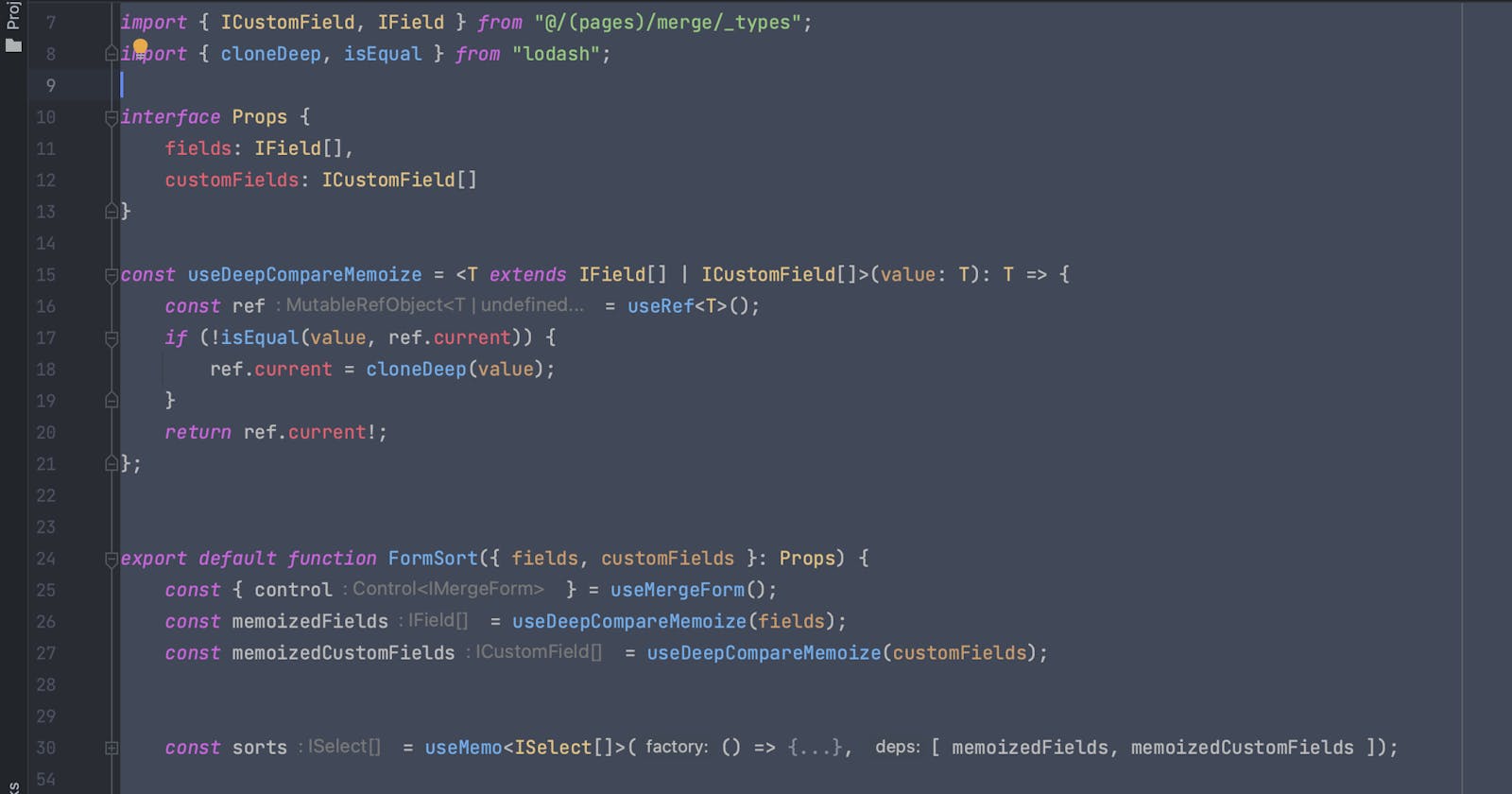When it comes to performance optimization in React, useMemo is a widely used hook. It's handy for avoiding expensive calculations on every render by memorizing the computed value. However, useMemo performs a shallow comparison of its dependencies, which can be an issue when you're dealing with nested objects. This post will demonstrate how to address this limitation by implementing deep comparison logic.
The Problem
In React, the useMemo hook only performs a shallow comparison of its dependencies. This means it does not detect changes in nested structures, causing it to not recompute when an inner property of an object changes.
Here's a simplified example:
const sorts = useMemo(() => {
// Some expensive computation
}, [fields, customFields]);
In the above example, if a nested property within fields or customFields changes, useMemo will not recognize it, leading to potentially stale or incorrect data.
The Non-optimal Approach: Deep Cloning
You might think that a simple solution would be to deep-clone the objects:
const memoizedFields = cloneDeep(fields);
const memoizedCustomFields = cloneDeep(customFields);
However, this approach always creates new objects, leading useMemo to recompute the value every time the component renders, which defeats the purpose of memoization.
The Optimal Solution: Deep Comparison with Memoization
The best way to tackle this issue is to implement deep comparison logic using a custom hook. Here's how you can do it:
import { useRef } from 'react';
import { isEqual, cloneDeep } from 'lodash';
const useDeepCompareMemoize = (value) => {
const ref = useRef();
if (!isEqual(value, ref.current)) {
ref.current = cloneDeep(value);
}
return ref.current;
};
We use the isEqual function from Lodash for deep equality checks and cloneDeep for deep cloning. Now you can use this custom hook to memoize the deeply nested objects:
const memoizedFields = useDeepCompareMemoize(fields);
const memoizedCustomFields = useDeepCompareMemoize(customFields);
const sorts = useMemo(() => {
// Some expensive computation
}, [memoizedFields, memoizedCustomFields]);
With this setup, useMemo will only recompute its value if there is an actual change in the deep structure of fields or customFields.
Deep comparison in React can be tricky but is essential when dealing with nested objects and arrays. By using a custom hook that leverages deep comparison and deep cloning, you can ensure that useMemo behaves as expected even with nested structures.
This approach does introduce some complexity and relies on external libraries like Lodash, but it effectively addresses the limitations of useMemo's shallow comparison. Always consider the trade-offs, especially the computational cost of deep equality checks and cloning for large or deeply nested objects.
